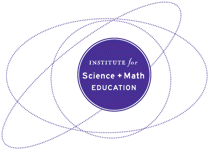How can I promote equitable sensemaking by setting expectations for multiple perspectives?

Why It Matters To You
- Teachers should be intentional about how they build classroom practices of collaboration. Small group work can perpetuate inequities if not structured well and monitored systematically.
- District Staff & PD Providers should share strategies and resources so teachers can develop collaborative talk as a classroom practice over time.
- School Leaders should be conscious of the critical role of contrasting ideas for science learning and the importance of providing equal voice to students from non-dominant communities.
What Is The Issue?
In a phenomena-focused, 3D approach to science learning, students use science practices to consider each other’s ideas based on available interpretations and evidence. To promote deep and equitable learning, plan purposefully to ensure that the various perspectives that students bring to making sense of phenomena are solicited, clarified, and considered. It is important to support students as they develop a shared understanding of the different perspectives in the group.
Authors:
EMILY MILLER, MARIA SIMANI & ANGELA DEBARGER | MARCH 2017
Reflection Questions
- What strategies can help ensure all student ideas/questions/ perspectives are shared, heard, and considered?
- When might you ask students to see their collaborative work as an opportunity to build areas of agreement and disagreement?
- How is the scientific norm of interrogating consensus incorporated in your instruction?
Things to Consider
- Help students identify and articulate areas of uncertainty or disagreement during sensemaking. The most exciting product of scientific argumentation in STEM professional communities is the discovery and acknowledgement of areas of uncertainty, which lead to insights and new questions to investigate. Students should know that part of the work of scientists is questioning consensus.
- Leverage expertise from all students. Respectfully considering more than one idea—especially unfamiliar or unexpected ones—is an important life skill. When all students are positioned as developing experts, sensemaking becomes more engaging, creative & effective.
- Setting an expectation for a variety of ideas builds STEM identities. Asking student groups to explain and explore different ideas and perspectives opens up spaces for alternative and contrasting ideas and distributes expertise. Discourse strategies can help student stamina in deciphering unfamiliar ideas.
Attending to Equity
- When students see their task as one of seeking consensus, they may “go along” with the ideas of peers they consider “most expert” or those who speak with confidence. Students may refrain from authentic science activities like voicing uncertainty, disagreeing, asking more questions, or arguing with disconfirming evidence. This can perpetuate inequities, as students who are already positioned as scientific—often students with strong English skills or intellectual resources from home that match school expectations—tend to be validated, while those who do not identify with schoolbased science are positioned as outsiders.
- It is not always easy for students to make sense of the ideas of peers, especially when they are learning English, process language differently, lack confidence, or are uncertain. Foster a culture where exploring all student ideas is valued, especially those of students whose voices are not often heard.
Recommended Actions You Can Take
- Routinely solicit lingering questions or areas where groups did not reach consensus. Let students know that if they did not reach consensus on everything, they were likely being responsive to their group members and taking ideas seriously. Model ways to compare ideas after they are shared, such as asking, “How are those ideas different?” and “What do those ideas have in common?”
- Offer students the opportunity to change their mind with phrases like, “How does that idea make sense?” Support students in taking the stance that all ideas offered in the group are reasonable and should be understood, considered, and evaluated by evidence.
- Use small group strategies to surface the various perspectives. Introduce strategies that ensure that everyone has a chance to speak before another person speaks again, such as passing around a ‘talking object.’ Be aware that some students may not share, and some students may be socialized to resist voicing dissent in a group.
- Ask groups to highlight interesting disagreements that took place around ideas, processes, or interpretations. Each student could place a sticky note on their group’s argument, explanation, or model to highlight something they are not sure about or do not agree with. You can highlight these differences in full-class conversation.
- Set the expectation for all students to have areas with which they are not in total agreement or have further questions. Validate students who persist in questioning the group’s thinking, and bring up stories of scientists who famously questioned prevailing thought.
ALSO SEE STEM TEACHING TOOLS
- #18 3D Formative Assessments
- #25 Culture and Argumentation
- #31 Building on Prior Interest
- #35 Talk Move Protocols
STEM Teaching Tools content copyright 2014-22 UW Institute for Science + Math Education. All rights reserved.
This site is primarily funded by the National Science Foundation (NSF) through Award #1920249 (previously through Awards #1238253 and #1854059). Opinions expressed are not those of any funding agency.
Work is licensed under a Creative Commons Attribution-ShareAlike 4.0 Unported License. Others may adapt with attribution. Funded by the National Science Foundation (NSF). Opinions expressed are not those of any funding agency.


 Email Feedback
Email Feedback


